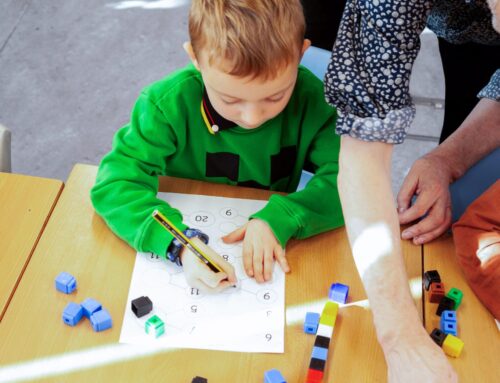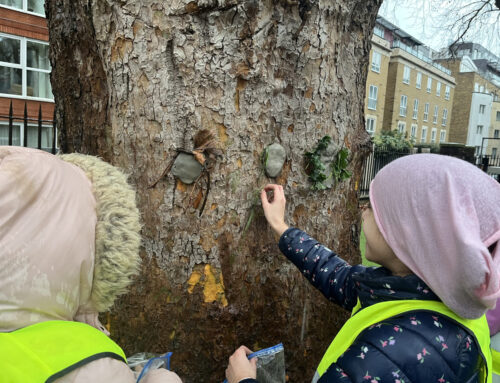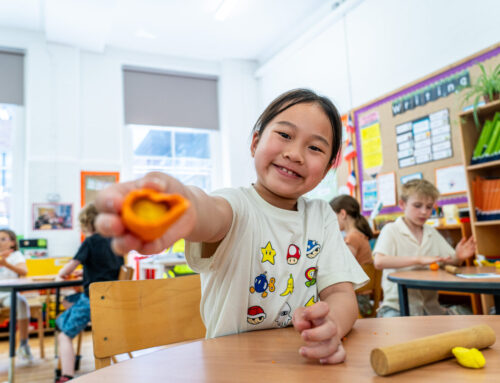The first half of a new school term is a time of both excitement and adjustment. Whilst some children and their families settle into the routine of school quickly, others can take much longer or have difficulty. Even after the first few weeks, many children (and parents!) are still finding their rhythm. Helping your child settle into school is very important and key to them getting the most out of their education. This starts with empathy, routine, and strong communication between the home and classroom.
As a progressive primary school in London, we believe that every child deserves a calm, creative, and confident beginning to their learning journey. By creating a child-centred learning environment, we help our students settle and feel at home right away. Below are seven proven strategies, backed by our experience supporting families through transitions both into and between schools, to help your child feel secure, happy, and ready to learn.
1. Talk About Feelings Early and Often
Starting a new school or class can bring excitement, curiosity, and sometimes a little worry. Encourage your child to express how they feel, whether that be nervousness about new friends or excitement about new classrooms. At Dallington, emotional literacy is woven through our curriculum because children who can name and manage their feelings are more confident learners.
Letting your child know that being nervous or feeling anxious is completely natural. Just by keeping open communication and working with them you will go a long way towards easing their worries. You might read books about school life together, role-play classroom situations, or simply make time for a daily “feelings check-in.”
These moments build trust and emotional security, because children adjust more easily when their emotions are acknowledged and understood.
2. Create Predictability Through Routine
Predictable routines help children feel safe and ready to engage. A consistent morning and bedtime routine can make a big difference to how a child experiences school. Simple steps like preparing the uniform the night before, eating breakfast together, or having a special goodbye ritual help create stability. This is especially true for autistic and neurodiverse children, for whom routine and familiarity act as grounding tools to help them to thrive at school and in daily life.
After school routine is just as important. Give your child time to decompress before asking about their day. Many children need a snack and some quiet play before they’re ready to talk. Over time, this gentle rhythm builds confidence and helps your child transition smoothly between home and school life.
3. Build a Sense of Belonging
A sense of belonging is the foundation of feeling settled at school. Children thrive when they feel part of a community that values them. Talk positively about school staff and classmates; use teachers’ names in conversation and celebrate small successes. Attend parent events or open afternoons where possible; seeing you engaged in school life reassures your child that their new world is safe and familiar.
At Dallington, community is central to learning. In our classrooms, children of different ages collaborate daily, and this sense of shared purpose helps new pupils quickly find their place.
4. Encourage Curiosity and Independence
Curiosity helps children feel in control of a new experience. Ask open-ended questions like “What was something new you discovered today?” or “What did you find interesting?” This kind of dialogue helps children process what they’re learning and builds pride in their growing independence.
In our school, we nurture independent thinking by giving children space to explore ideas, make choices, and reflect on their learning. At home, you can mirror this approach by letting your child take small responsibilities, such as choosing their snack, packing their bag, or deciding which story to read at bedtime. This helps reinforce their sense of capability and confidence.
5. Support Friendships Gently
Friendships are central to feeling happy and secure at school. They help to develop your child’s social skills and integrate them into the community as a whole.
It can take time for genuine connections to form, so focus on kindness and inclusion rather than instant friendships. Encourage your child to introduce themselves, share toys, or invite others to play. Arrange small playdates or trips to the park with classmates to help relationships grow naturally. If your child is shy or slow to warm up, remind them that friendships develop step by step and that being friendly and respectful is enough. At Dallington, teachers pay close attention to social dynamics and help children find their footing in group play and collaborative learning.
6. Balance School with Downtime
Rest and unstructured play are vital parts of settling in. The school day should be stimulating for your child, but it is often tiring, especially in the early weeks of term. Give your child space after school to relax without extra pressure. Time outdoors, creative play, or quiet reading helps them process new experiences and recharge emotionally. Avoid over-scheduling after-school activities; a calmer rhythm allows children to adjust at their own pace. Our progressive approach at Dallington values balance and recognises that meaningful learning happens when children feel well-rested and emotionally grounded.
7. Stay Connected with Teachers
Open communication between parents and teachers supports every child’s adjustment. If you notice changes in your child’s mood, sleep, or enthusiasm, reach out to their teacher early. At Dallington, family partnerships are a cornerstone of our ethos. We know that children thrive when school and home work in harmony. Teachers can offer insights, reassurance, and practical strategies, from friendship support to classroom transitions. You can also explore our support for individual learning needs, which ensures every child’s experience is personalised and nurturing.
Final Thoughts
Settling into school is a shared journey that each child takes at their own pace. However patience, empathy, and connection are all crucial in ensuring that they feel supported during the transition. By nurturing these qualities at home and partnering with your child’s teachers, you’re giving them the best possible start to their school life.
For more information about Dallington’s child-centred approach to learning, explore our pages on progressive education and SEND support.
Frequently Asked Questions
How can I help my child settle into a new school?
Start with empathy and routine. Talk openly about feelings, establish consistent daily patterns, and stay in close contact with teachers. Encourage curiosity and make time for rest and unstructured play. At Dallington, we’ve found that children settle best when home and school work together to create emotional safety and belonging.
How long does it take a child to settle into school?
Every child is different, but most begin to feel comfortable after a few weeks once routines are familiar and friendships start to form. If your child is still finding the transition difficult after half a term, speak to their teacher — early communication ensures the right support is in place.
What if my child is struggling to make friends?
Friendships take time. Encourage small, positive social steps such as sharing, inviting others to play, or joining group activities. Arrange informal playdates when possible. At Dallington, teachers help children build confidence and social awareness so that friendships develop naturally and kindly.





